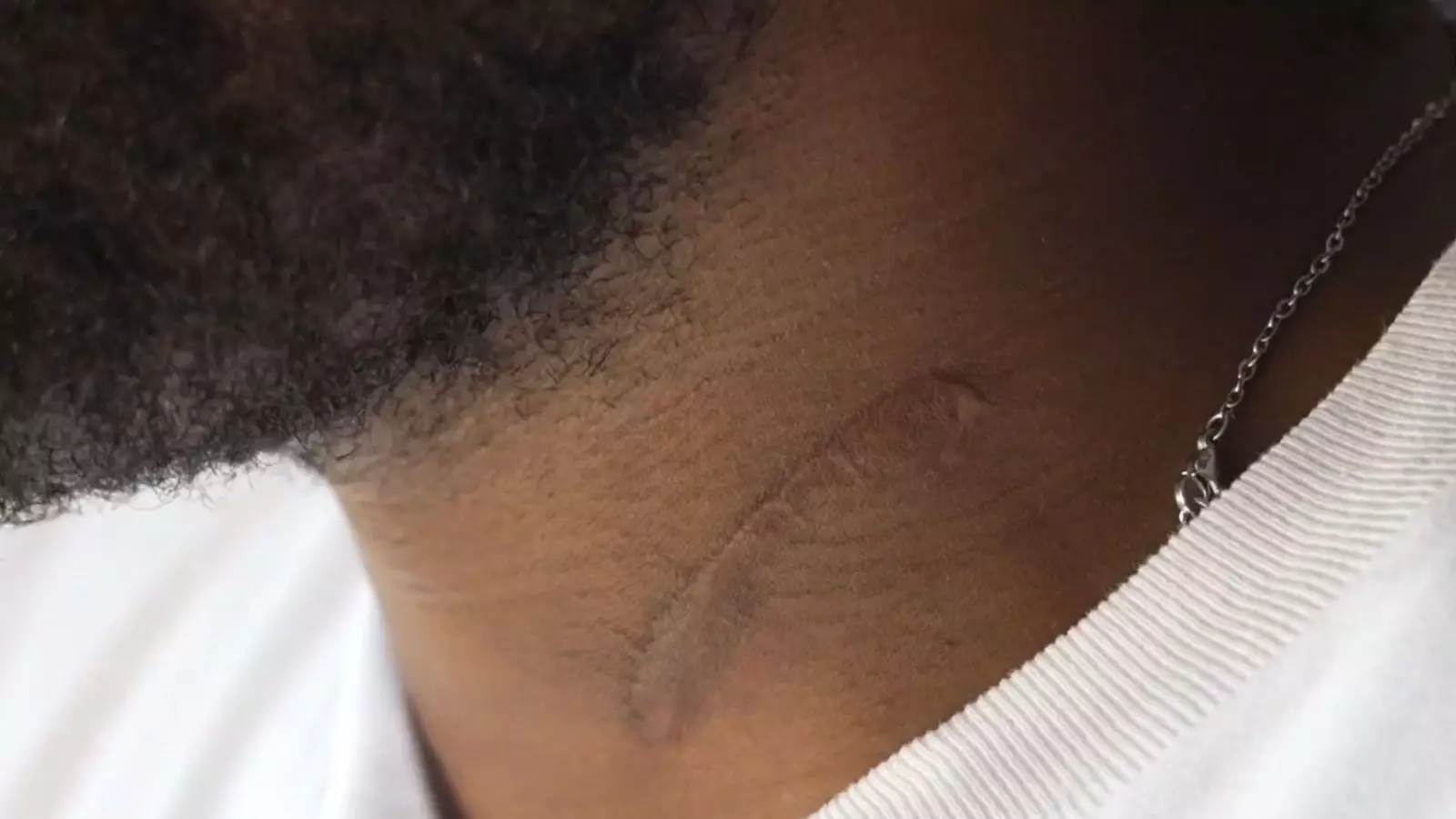In a harrowing tale that could easily be mistaken for a horror film script, survivor Donato Iwule described the chilling confrontations with his attacker, Marcus Arduini Monzo, during a violent melee in Hainault, East London. The trappings of everyday life often shield us from the brutal realities of violence, yet in a matter of moments, Iwule found himself ensnared in a traumatic nightmare that would forever change him. Monzo’s rampage—marked by swift brutality and mindless rage—culminated in tragedy, including the heart-wrenching death of fourteen-year-old Daniel Anjorin, showcasing not only the fragility of life but also the unrelenting nature of evil.
As Iwule recounted his surreal experience, he spoke of a momentary exchange with his assailant that haunted him like a specter: the furious gaze of Monzo, accompanied by the words, “I’m going to kill you.” Here, we observe the terrifying intersection of life and death; a simple act like commuting to work transformed into a life-threatening ordeal. One would think that the image of someone wielding a samurai sword should inspire fear only in fiction, yet this was Iwule’s grim reality as he dodged death itself.
Surreal Reality of Survival
Iwule’s account transports listeners into the chaotic milieu of that fateful day. He likened the unfolding events to scenes from a horror movie, where the ordinary suddenly becomes horrifyingly wicked. When Monzo accelerated towards him in a grey Ford Transit van, the speed and intent were unmistakable. One cannot help but ruminate on the motivations of the aggressor; what drives a person to inflict such violence upon unsuspecting individuals? Iwule assumed he was witnessing a moment of human fragility, yet Monzo was embodying something far deeper—a malignant rage that no amount of reason could quell.
Reacting swiftly in the face of urgent danger, Iwule exhibited a remarkable resolve despite the choking fear that must have accompanied each swing of the sword. Surprisingly, amid the panic, he called out to his attacker, asking if he was okay. This moment underscores a profound irony: in the face of insurmountable chaos, human compassion persists—even for those intent on malice. This choice to engage with Monzo rather than flee revealed a striking instinct to connect, an echo of our inherent desire to understand the motives behind madness, even as it threatens our existence.
The Aftermath of Trauma
The repercussions of such an encounter, however, extend far beyond physical injuries. Iwule’s ordeal has left indelible psychological scars, manifesting into months of trauma that crippled his sense of safety. He found himself shackled by fear and anxiety, leading to a reliance on familial support as he grappled with the dread of simply existing. We often underestimate the long-term impact of violence on victims, reducing their experience to a fleeting news headline while dismissing the profound emotional ramifications of such ordeals.
Monzo’s conviction may serve as a temporary salve to Iwule’s wounds; nevertheless, one cannot validate that justice offers true healing. Iwule’s relief at the impending sentencing is palpable, yet it hardly diminishes the visceral memories of that day. Each recollection of Monzo’s rage, each phantom swing of the sword, continues to replay in his mind, indicating that psychological wounds often run deeper than those that manifest physically.
A Call to Acknowledge Human Vulnerability
We must confront the uncomfortable reality that society often overlooks the haunting nature of violence in our communities. In the age of headlines and soundbites, narratives like Iwule’s remind us of our collective responsibility to engage critically with our surroundings. Violence, as an expression of despair or aggression, is an ugly truth that cannot be ignored or normalized. We owe it to survivors like Iwule not only to hear their stories but to advocate for a culture that recognizes the signs of potential violence and takes action before the horror unfolds.
The sheer randomness of Iwule’s experience leaves a chilling reminder of the darkness lurking beneath the surface of everyday life—a darkness that can erupt at any moment, throwing innocent lives into chaos. Confronting this reality is not simply a matter of awareness but calls for a commitment to a future where such assaults become relics of an uncivilized past rather than recurring tragedies.
As we reflect on this shocking story, let us elevate our discourse—advocating for understanding, empathy, and meaningful societal change, rather than allowing fear to paralyze us into complacency.


Leave a Reply